Medical calibration services are essential for ensuring the accuracy and reliability of medical equipment. Precise measurements and calibrations are crucial for the proper functioning of medical devices, as they directly impact electrical calibration equipment the quality of patient care and diagnosis. In this article, we will discuss the importance of medical calibration services and their role in maintaining accuracy and precision in the healthcare industry.
Medical calibration services are essential for ensuring the accuracy and reliability of medical equipment used in healthcare settings. These services involve the precise adjustment and standardization of medical devices to ensure that they provide accurate and consistent measurements and readings. Calibration ensures that medical equipment such as ultrasound machines, ECG monitors, infusion pumps, and other critical devices are functioning within specified tolerances. This is crucial for making accurate diagnoses, determining appropriate treatments, and monitoring patient health. Without accurate calibration, there is a risk of incorrect measurements and readings, which could lead to misdiagnoses, inappropriate treatments, or compromised patient safety. In addition, medical calibration services are often required to comply with industry regulations load cell calibration equipment and standards, as well as to maintain accreditation and certification. By utilizing medical calibration services, healthcare facilities can have peace of mind knowing that their equipment is operating accurately and reliably. This ultimately contributes to the delivery of high-quality patient care and better outcomes.
Understanding the Importance of Medical Calibration Services
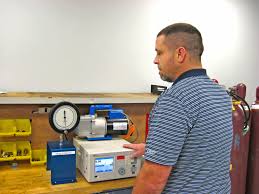
Medical calibration services are an essential part of ensuring the accuracy and reliability of medical equipment. Calibration involves comparing the measurements of a device to a known standard in order to detect and correct any errors. In the medical field, the precision of equipment such as imaging devices, patient monitors, and laboratory instruments is critical for accurate diagnosis and treatment. Regular calibration of medical equipment is important for maintaining compliance with industry standards and regulations, as well as for patient safety. Inaccurate measurements or readings from medical devices can lead to misdiagnosis, incorrect treatment, on site calibration services or potential harm to patients. Therefore, medical calibration services play a crucial role in upholding the quality and integrity of healthcare services. Moreover, calibration is vital for the performance and longevity of medical equipment. Over time, instruments can drift out of alignment or lose accuracy, which can compromise their functionality. By having medical equipment calibrated on a regular basis, healthcare providers can prevent potential malfunctions and breakdowns, ultimately saving time and costs associated with repairs and replacements. In conclusion, understanding the importance of medical calibration services is essential for maintaining the quality, accuracy, and safety of medical equipment. By investing in professional calibration services, healthcare facilities can ensure that their equipment meets industry standards, operates reliably, and delivers accurate results for the benefit of patients.
The Role of ISO Standards in Medical Calibration Services
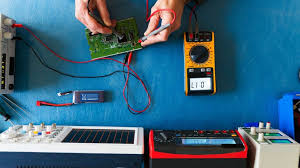
ISO standards play a crucial role in medical calibration services. These standards provide guidelines for the calibration process, ensuring that medical equipment and instruments meet the necessary accuracy and precision requirements. By adhering to ISO standards, medical calibration services can guarantee the reliability and consistency of their calibration procedures, ultimately leading to improved quality control and patient safety. Additionally, ISO standards help standardize the calibration process across different medical facilities, allowing for better interoperability and consistency in healthcare delivery. Overall, ISO standards are essential in ensuring the effectiveness and reliability of medical calibration services.
Choosing the Right Provider for Medical Calibration Services
onsite calibration services
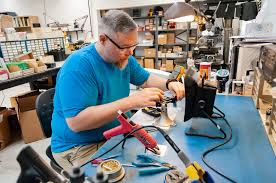
When choosing a provider for medical calibration services, it is essential to consider factors such as their accreditation, experience, and reputation in the industry. Look for a provider that is accredited by relevant regulatory bodies, such as ISO or FDA, to ensure that their calibration services meet industry standards. Additionally, consider the provider's experience in calibrating medical equipment and their track record of delivering high-quality services. It is also important to seek out references and reviews from other healthcare professionals to ensure the provider has a solid reputation for accuracy and reliability. Lastly, consider the provider's turnaround time and customer service to ensure that they can meet your facility's needs efficiently and effectively. Investing time in finding the right provider for medical calibration services can help ensure the accuracy and reliability of your medical equipment.
The Benefits of Outsourcing Medical Calibration Services
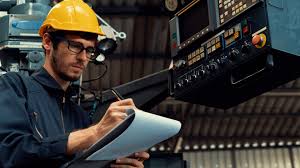
Outsourcing medical calibration services can offer several benefits to healthcare facilities. Firstly, it allows organizations to focus on their core activities, such as patient care, by offloading the responsibility of maintaining and calibrating medical equipment to specialized service providers. This can result in increased efficiency and productivity within the facility. Additionally, outsourcing medical calibration services can lead to cost savings for healthcare facilities. By entrusting the calibration of medical equipment to external experts, organizations can avoid the expense of hiring and training in-house calibration specialists. Service providers may also offer competitive pricing and flexible service contracts, allowing facilities to optimize their budget and allocate resources more effectively. Furthermore, partnering with a reputable calibration service provider can ensure compliance with industry standards and regulations. Accredited calibration professionals have the expertise and experience to accurately calibrate medical equipment according to stringent guidelines, helping healthcare facilities uphold quality standards and meet regulatory requirements. Ultimately, outsourcing medical calibration services can provide healthcare organizations with peace of mind, knowing that their critical equipment is being maintained and calibrated by qualified professionals, while allowing them to focus on delivering high-quality patient care.
Ensuring Compliance with Regulatory Requirements for Medical Calibration Services
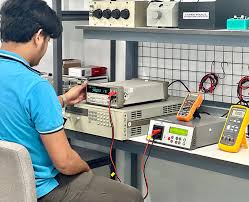
Ensuring compliance with regulatory requirements for medical calibration services is crucial for maintaining the safety and accuracy of medical equipment. This involves adhering to standards set by regulatory bodies such as the Food and Drug Administration (FDA) and the International Organization for Standardization (ISO). Compliance includes following guidelines for equipment calibration, documentation, and quality management systems. Failure to meet these requirements can result in serious consequences, including safety risks and legal penalties. Therefore, it is essential for medical calibration services to stay updated with regulatory changes and ensure strict adherence to all applicable requirements.
The Evolution of Technology in Medical Calibration Services
The evolution of technology in medical calibration services has been marked by significant advancements in accuracy, efficiency, and automation. Traditional methods of calibration, which relied on manual measurements and calculations, have been replaced by computerized systems and sophisticated software. This has greatly improved the precision and reliability of medical equipment calibration. Furthermore, the integration of sensors and data analytics has allowed for real-time monitoring and adjustment of medical devices, ensuring continuous accuracy and performance. Advancements in imaging technology, such as 3D scanning and digital modeling, have enabled more detailed and comprehensive calibration of complex medical equipment. Additionally, the use of cloud-based systems and connectivity has facilitated remote monitoring and calibration, allowing for faster response times and minimizing downtime for medical equipment. Overall, the evolution of technology in medical calibration services has streamlined the calibration process, improved accuracy, and ultimately enhanced patient care.
Addressing Common Challenges in Medical Calibration Services
Addressing common challenges in medical calibration services requires a thorough understanding of regulatory requirements, technical complexities, and quality assurance measures. Some of the key challenges include navigating evolving industry standards, ensuring equipment accuracy and precision, managing a diverse range of medical devices, and maintaining compliance with stringent regulations. To overcome these challenges, calibration service providers need to invest in advanced calibration equipment, stay updated on industry guidelines, and prioritize robust training and certification for their technicians. Additionally, implementing a comprehensive quality management system and establishing clear communication channels with healthcare facilities can help mitigate potential issues and ensure the delivery of reliable calibration services.
The Future of Medical Calibration Services: Trends and Innovations<
metrology calibration services/h2>
The future of medical calibration services is heavily influenced by ongoing technological advancements and innovations. This includes the integration of artificial intelligence and machine learning algorithms into calibration processes, allowing for more precise and efficient measurements. Additionally, there is a growing focus on developing portable and on-site calibration devices, enabling healthcare facilities to perform calibrations in-house without needing to send equipment to third-party service providers. Furthermore, the use of cloud-based calibration management systems is becoming more prevalent, streamlining the tracking and maintenance of calibration records. This trend towards digitization also presents opportunities for remote calibration services, reducing the need for physical presence during the calibration process. In terms of regulatory trends, there is an increasing emphasis on traceability and accreditation of calibration services, driving the adoption of international standards such as ISO 17025. This places added importance on the competency and expertise of calibration service providers, as healthcare institutions seek reliable and compliant partners. Overall, the future of medical calibration services is characterized by a shift towards automation, digitization, mobility, and compliance with international standards. These trends and innovations are geared towards enhancing the accuracy, efficiency, and reliability of medical equipment calibration in the evolving healthcare landscape.
Maximizing the Efficiency of Medical Calibration Services
Maximizing the efficiency of medical calibration services is essential for ensuring the accuracy and reliability of medical equipment. This can be achieved by implementing streamlined processes, utilizing advanced technology for calibration, and employing highly trained technicians. Additionally, maintaining comprehensive records and adhering to strict quality control standards are crucial for optimizing the efficiency of medical calibration services. By prioritizing these factors, healthcare facilities can minimize downtime, reduce costs, and ultimately provide the best possible patient care.
Ensuring Patient Safety through Quality Medical Calibration Services
Quality medical calibration services are essential in ensuring patient safety and the effectiveness of medical equipment. These services involve the precise adjustment and testing of medical devices to ensure they are operating within specified tolerances and providing accurate and reliable results. Properly calibrated medical equipment is critical for accurate diagnosis, effective treatment, and overall patient care. Without reliable calibration, there is a risk of incorrect readings and potential harm to patients. Medical calibration services play a crucial role in maintaining the accuracy and reliability of various types of medical equipment, including imaging devices, laboratory instruments, patient monitors, and more. By working with accredited and experienced calibration providers, healthcare facilities can ensure that their medical equipment meets industry standards and regulatory requirements. This not only helps to safeguard patient safety but also contributes to the overall quality of healthcare delivery. In summary, medical calibration services are an integral part of maintaining patient safety and the quality of care in healthcare settings. By partnering with reputable calibration providers, healthcare facilities can ensure that their medical equipment is accurately calibrated and functioning optimally, ultimately benefiting both patients and healthcare professionals.
The Impact of Preventive Maintenance in Medical Calibration Services
Preventive maintenance in medical calibration services plays a critical role in ensuring the accuracy and reliability of medical equipment. By regularly performing preventive maintenance, healthcare facilities can prevent potential equipment failures, reduce downtime, and extend the lifespan of their medical devices. This ultimately translates to improved patient care, as healthcare providers can rely on the accuracy of their equipment for diagnosis and treatment. In addition, preventive maintenance can also help facilities remain compliant with industry standards and regulations, as well as minimize the risk of costly repairs and replacements. Overall, the impact of preventive maintenance in medical calibration services is instrumental in maintaining the quality and integrity of healthcare delivery.